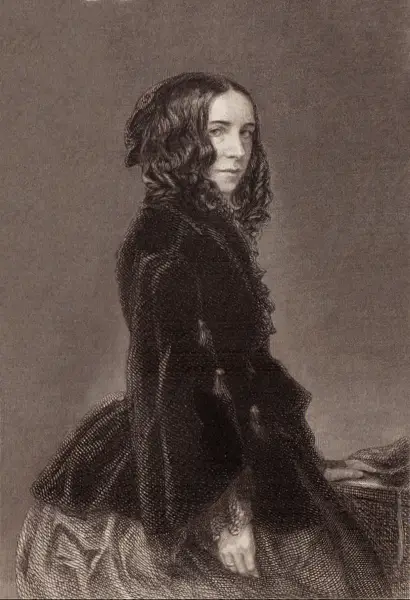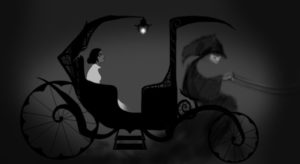
FULL POEM - SCROLL DOWN FOR LINE-BY-LINE ANALYSIS
How do I love thee? Let me count the ways.
I love thee to the depth and breadth and height
My soul can reach, when feeling out of sight
For the ends of being and ideal grace.
I love thee to the level of every day’s
Most quiet need, by sun and candle-light.
I love thee freely, as men strive for right;
I love thee purely, as they turn from praise.
I love thee with the passion put to use
In my old griefs, and with my childhood’s faith.
I love thee with a love I seemed to lose
With my lost saints. I love thee with the breath,
Smiles, tears, of all my life; and, if God choose,
I shall but love thee better after death.

LINE-BY-LINE ANALYSIS
STANZA 1
How do I love thee? Let me count the ways!
This is one of the most famous lines in love poetry. The first rhetorical question is directly addressed to Elizabeth’s Browning husband Robert Browning. She immediately answers this question (hypophora) which, along with the exclamation mark, conveys her delight and childlike enthusiasm to reply. This first line has a very conversational tone.
I love thee to the depth and breadth and height
My soul can reach, when feeling out of sight
For the ends of being and ideal grace.
Browning utilises a spacial metaphor with ‘depth’ ‘breath’ and ‘height’ to portray the all-encompassing nature of her love for Robert. Imagine ‘feeling out of sight’ to be reaching up to somewhere like a shelf where you can no longer see your hand or where it’s touching. This image describes the blind faith and ultimate trust of her love for him. Browning was a very religious woman and the religious imagery of ‘grace’ and ‘soul’ suggest that her religion supports her love for him.
I love thee to the level of every day’s
Most quiet need, by sun and candle-light.
These two lines also state how her love and passion for him continue in times of quietness and reflection and explains her constant feeling of love for him, hence, this description is more emotive. The images of ‘sun’ and ‘candle-light’ not only explain how she loves him during the day and night, but also in powerful, exciting moments like the ‘sun’ and quiet, but still very passionate moments like the flickering fire of ‘candle-light’.
I love thee freely, as men strive for right;
‘I love thee freely’ is describing Elizabeth’s free choice to love Robert (which was significant in Victorian times as women may be forced to marry). Her love for him is also morally correct like ‘men striving for right’.
I love thee purely, as they turn from praise.
Although not explicitly clear, the idea of ‘purity’ in this line is a repetition of the concept of freedom from the previous line. In this case, this freedom is from guilt and sin. This second part explains that her love is modest and humble and not fuelled by the ‘praise’ of others.
I love thee with the passion put to use
In my old griefs, and with my childhood’s faith.
Browning is describing as loving him with all of the passion (but in a negative sense, not associated with love but loss and desolation) of her ‘old griefs’. The wordplay with ‘passion’ and how she flips it on his head from representing her previous torment to her current love is ingenious. Her ‘old griefs’ could be the loss of her mother and brother or the continual illness she has suffered with – either way very distressing events which she is now channeling into her love.
I love thee with a love I seemed to lose
With my lost saints. I love thee with the breath,
‘Saints’ are a religious symbol of certain Christian faiths including Roman Catholic and Eastern Orthodox. Browning states that she ‘seemed to lose’ her love for them. It is very probable that she is explaining that her love for Robert has equal intensity to a point in her childhood when she dabbled in these religions and had a love of the ‘saints’ within them.
Smiles, tears, of all my life; and, if God choose,
The triplet of ‘breath, smiles, tears’ is used to elucidate the extent of her love for him and how she loves him in times of happiness and tragedy and generally whenever she is alive and ‘breathing’. The language ‘if God choose’ illustrates that, despite the immense power of her love, ‘God’ still reigns supreme but not in a negative way – if anything his giving of love allows her love to grow stronger.
I shall but love thee better after death.
The final line confirms that her love is undying as well as all-powerful, and that this force of her love doesn’t die with death but grows even stronger.


